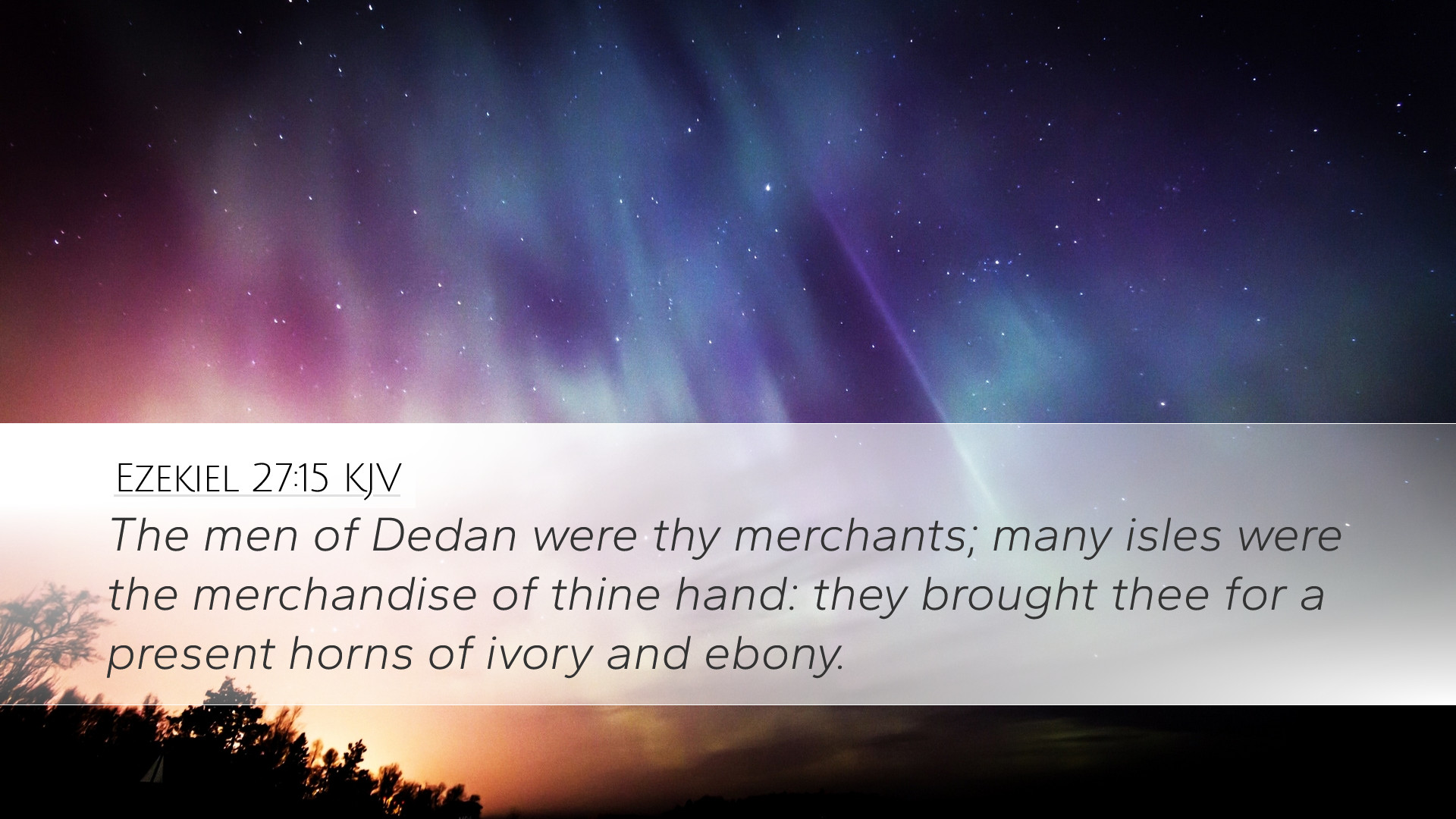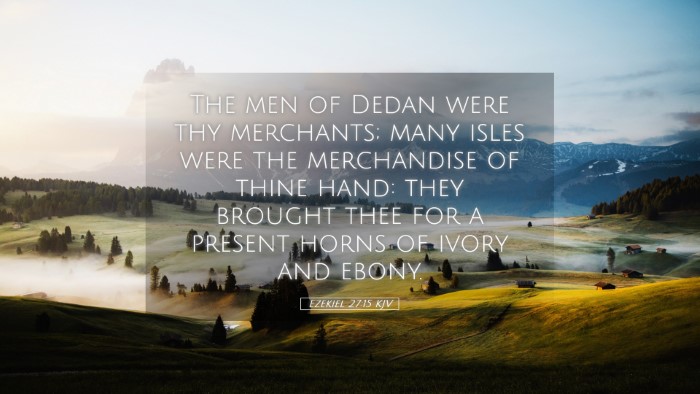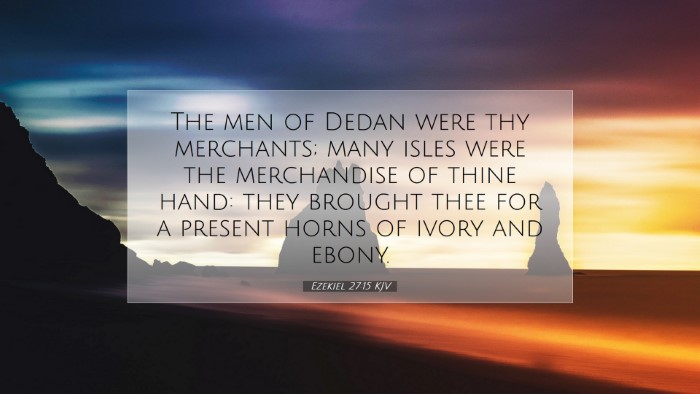Ezekiel 27:15 - Commentary Summary
Ezekiel 27:15 states: "The men of Dedan were thy merchants; many isles were the merchandise of thine hand: they brought thee for a present horns of ivory and ebony." This verse is part of Ezekiel's lamentation over Tyre, capturing the extensive trade networks and the wealth accumulated through commerce.
Contextual Background
Ezekiel declares the impending judgment on Tyre for its pride and excessive materialism. The city's prosperity stemmed largely from its extensive maritime trade, connecting it to various regions, including Arabia, as noted by multiple commentators. The mention of Dedan indicates the significance of Arabian merchants in Tyre's economic prowess.
Commentary Insights
Matthew Henry's Commentary
Matthew Henry emphasizes the psychological impact of Tyre's trade relationships. He states that Tyre's merchants were not only wealthy but also influential, creating dependencies that would ultimately lead to a lament when Tyre fell. The reference to Dedan illustrates how even foreign nations were deeply intertwined in Tyre's affluence. Henry points out that the materials mentioned—horns of ivory and ebony—symbolize luxury and the opulence of Tyre's trade.
Albert Barnes' Notes
Albert Barnes elaborates on the literal meaning of "horns of ivory and ebony," noting their value in ancient times. Ivory was associated with wealth and was highly coveted, just as ebony represented a rich, dark wood favored for crafting elaborate artifacts. Barnes explains that by specifying the goods traded, the verse highlights Tyre's position as a central hub for exotic materials, reinforcing its dominance in trade. He also expresses that Tyre’s alliances and trade routes reveal a network that spanned across nations, showcasing its regional importance.
Adam Clarke’s Commentary
Adam Clarke offers a detailed analysis of the merchants of Dedan and their role in the economic framework of Tyre. He asserts that Dedan was known for its commerce and trade, particularly in valuable commodities. Clarke emphasizes the irony in Tyre's judgments, as these merchants, benefiting from Tyre’s prosperity, would share in its grief once it faced destruction. He highlights the interconnectedness of nations, where the downfall of one can have wide-reaching ramifications on others, including those like Dedan.
Theological Reflections
The passage invites reflection on the nature of wealth in relation to divine judgment. The luxury and excess enjoyed by Tyre serve as a reminder of the transient nature of material possessions. It poses an important question for modern Christians regarding their attachment to wealth and the ethical implications of commerce. The connections outlined in this passage resonate today, as global economies are intricately linked, and often, what benefits one nation can develop into harm for another—highlighting the need for ethical stewardship.
Conclusion
In summary, Ezekiel 27:15 paints a vivid picture of Tyre's opulence and the role of Dedan within that economic tapestry. Insights from Matthew Henry, Albert Barnes, and Adam Clarke reveal the multilayered implications of trade, wealth, and the eventual consequences of pride. Understanding this passage enriches both the historical and theological perspectives for today’s audience, challenging them to consider how they engage with wealth and relationships in a global economy.


